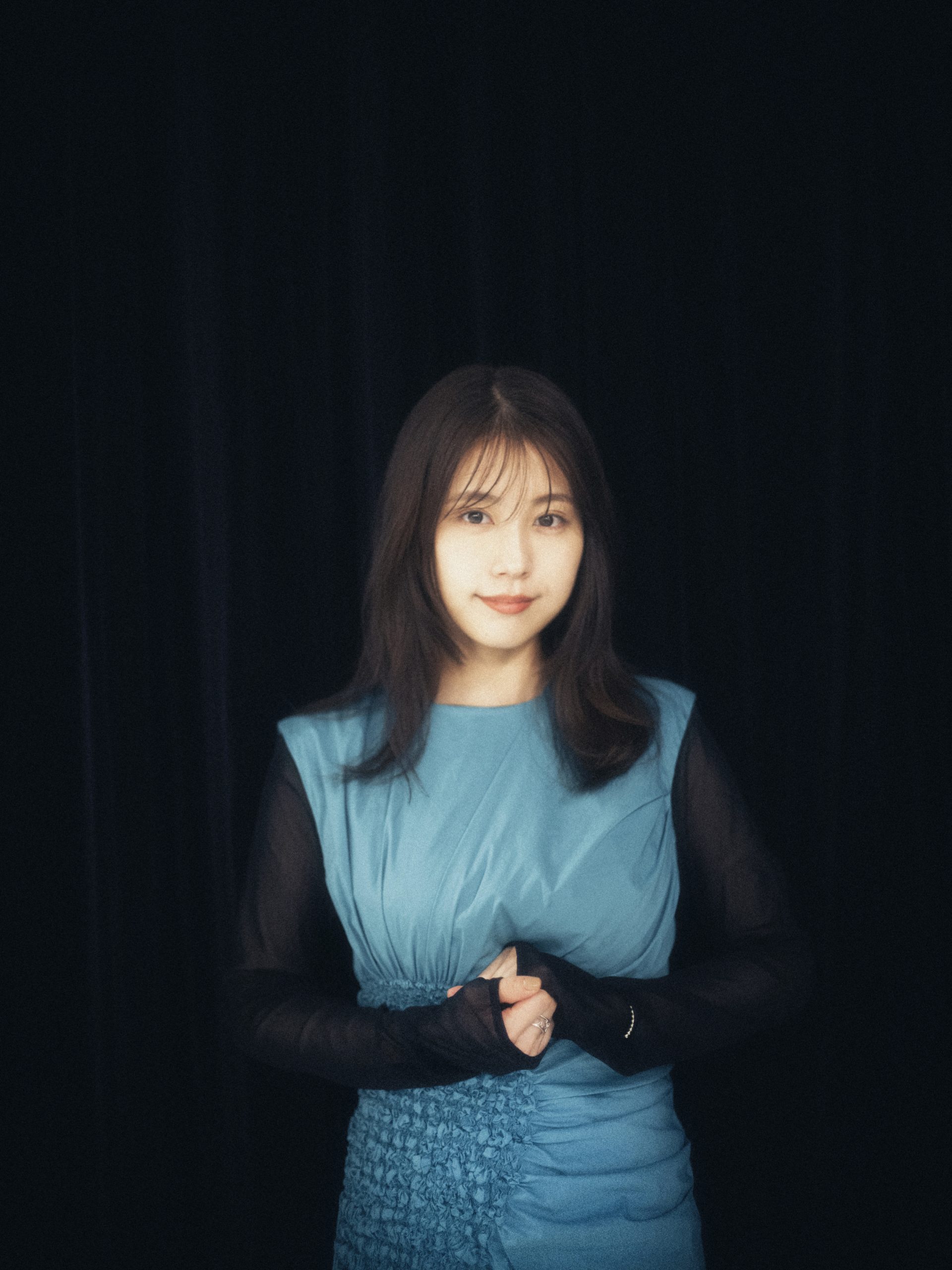
Kasumi Arimura
Born February 13th, 1993 in Hyogo prefecture. She made her TV drama debut in 2010 in She’s a Steely Woman! (Asahi TV), and gained widespread attention for her role in NHK’s TV series Amachan shortly thereafter, in 2013. In 2015, Arimura was cast as the lead in Biri Gal, and won the Japan Academy Award for best lead actress/best new actor, and for best lead actress in 2021 for her role in Hanataba Mitaina Koi Wo Shita. In 2022, she appeared in the TBS TV drama Ishiko and Haneo and the film Tsuki No Michi Kake. In 2023, she appeared in NHK period drama Dousuru Ieyasu and the film Call Me Chihiro. Other appearances include Natarrage (2017), Soshite, Ikiru (2019), Rurou Ni Kennshin the Final/the Beginnings (2021), Zenkamono (2022), and others.
https://www.flamme.co.jp/actress/profile.php?talentid=11
Instagram:@kasumi_arimura.official
Twitter:@Kasumistaff
There exists values that are born from the time and cherished by people throughout the ages. In this series,時音, we look back at the works of people who have promoted such values and speak with them about what they anticipate in the future.
In this installment, we interviewed actor Kasumi Arimura, star of the film Call Me Chihiro. The film is a live-action adaptation of Hiroyuki Yasuda’s manga of Chihiro-san, and is directed by Rikiya Imaizumi. The film follows former sex worker Chihiro who works at a lunch box shop in a small seaside town, and the various interactions she has with the people she meets there.
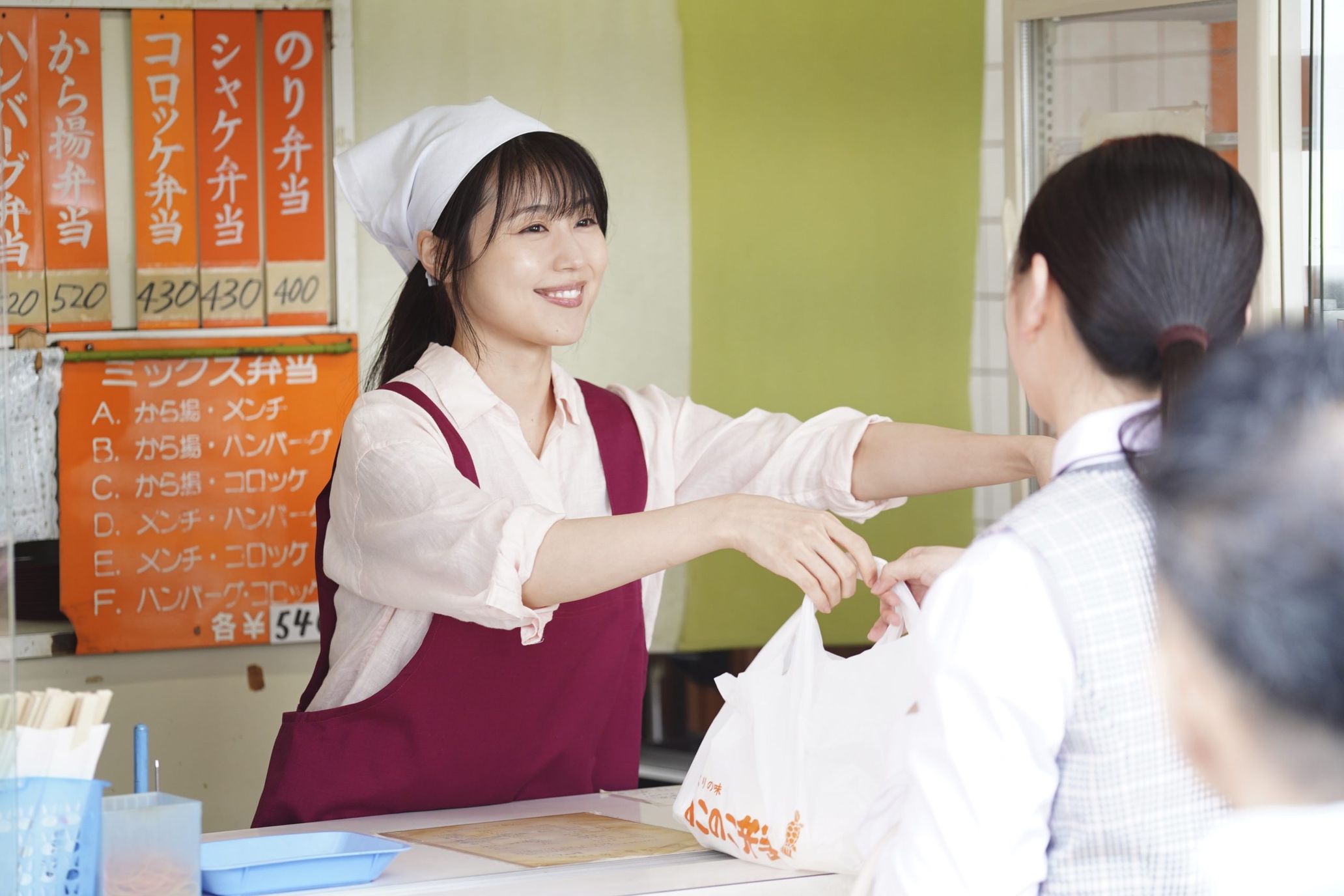
Arimura captivated audiences with her performances in the films Hanataba Mitaina Koi Wo Shita, the TV drama Ishiko and Haneo, and Call Me Chihiro. We interviewed her about where she’s at currently, at the age of 30.
A comfortable distance
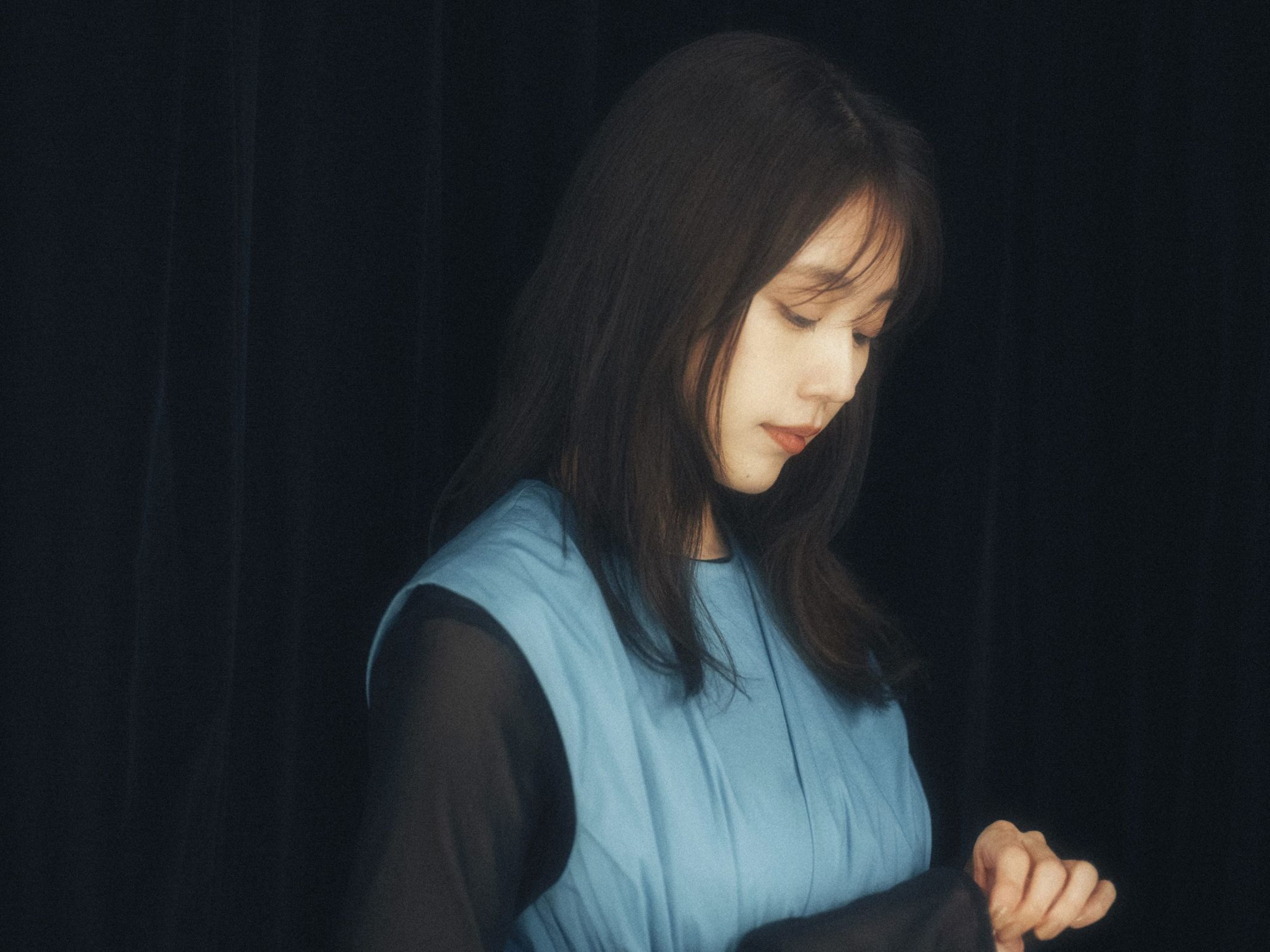
– Call Me Chihiro was wonderful. I also love Ishiko (TV drama Ishiko To Haneo).
Kasumi Arimura: Thank you (laughs).
– I feel that the characters you’ve played in recent years, including Kinu (from Hanataba Mitaina Koi Wo Shita), have truly been captivating. What do you keep in mind when you play these roles?
Arimura: In my case, I find that I need to create a good foundation for my characters within myself, or else things become too vague. To do that, I look for the core of all the characters I play. For Chihiro, I built up her past based on clues written in the original manga. I assumed maybe Chihiro got tired of being too giving in the past, whether it was in her relationships with men or in her relationships at the company she worked for. Or that maybe she doesn’t know how to give love because she didn’t receive it from her mother. And perhaps that’s why Chihiro wants to give love to so many people, and why she ultimately ends up burning out. Those past experiences may have been what led her to keep her distance. I can’t verbally explain the nuances, but I put the pieces together to create the role within myself.
– What did you try to remain conscious of when expressing the Chihiro that you created using your own body?
Arimura: Chihiro looks good with short, blunt bangs and long black hair. Just from her appearance, you can sense a beautiful and charming person. She speaks gracefully, and possesses an unforgettable charm that comes across even after one conversation with her. It was difficult to create Chihiro’s distinct character since she’s at a different place than where I am usually, and has lived a different life than I have. So what I could do was try to lower my voice, not speak too fast, and try not to deviate too much from a certain level of emotion and passion felt from the tone of my voice.
– Did you work with Director Imaizumi to adjust how to depict the more delicate details of womanhood, such as Chihiro’s past as a sex worker or her relationship with Taniguichi (Ryuya Wakaba)?
Arimura: Director Imaizumi repeatedly asked me to “be a little more cheerful” on set. But he also mentioned that Chihiro is hard to depict because she couldn’t be too bubbly or too reserved. Mr. Imaizumi was probably also wondering if things were right while shooting, which I didn’t know the answer to, either. We basically finished shooting by worrying about it together.
– Can you tell us a scene that moved you while you were playing Chihiro?
Arimura: I think for Chihiro, her relationship with (the wife of the manager of the lunch box shop she works at) Tae (Jun Fubuki) is special. It felt as if Chihiro (her alias) could be her real self, Aya (her real name) in front of Tayo.
– Chihiro tends to keep her distance from people because of her past experiences and to maintain her emotional stability.
Arimura: I felt like I could understand why she kept her distance from people. When I think about it, I’m also not the type to overstep, and I keep a reasonable distance with even my friends. This keeps my emotions from fluctuating as much in my personal life, which is more comforting to me. Since I’m so stimulated in my work life, I want to be able to live an unstimulating, calm personal life as much as possible (laughs). I think about how the other person may want me to keep my distance, too.
For instance, if someone asks me to listen to a problem they’ve been having, it may be better for them if I keep a reasonable distance so I don’t accommodate so much or get sucked into their emotions. When I think about things like that, I feel like the way Chihiro keeps her distance is perfect for my current self.
– Do you think you, like Chihiro, learned to maintain distance because of your past experiences with different people?
Arimura: I met a lot of people in my twenties because of my line of work. It becomes difficult to maintain good relationships with so many people if I don’t keep a reasonable distance. If you’re part of an institution that allows you to work with the same people all the time, it’s best to build good relationships during a long period of time. But the projects I’m a part of take three months, or even as short as one month to finish. Of course I treat everyone the same when I first meet them, and I work hard for the months we’re shooting. But if I don’t let the people go after I say goodbye when production ends, I wouldn’t be able to maintain myself. There’s a part of me that can’t move on if I don’t do that.
– You mentioned that you find a lot of stimulation from your job. Can you elaborate?
Arimura: I meet and part with so many people throughout the short span of a year, I work with countless people for a single project, and I have to manipulate my emotions to act, whether that’s to cry, laugh, depict anger, suffering, or happiness. Everything I can’t get from my personal life is all stimulating.
– You don’t get used to that stimulation?
Arimura: No, you don’t. That’s why living a quiet and calm life at home enables me to be more myself. The more I lay low, the more I can ride the waves of emotion when I’m acting (laughs). I believe that’s my style, too.
Solitude does not equal loneliness
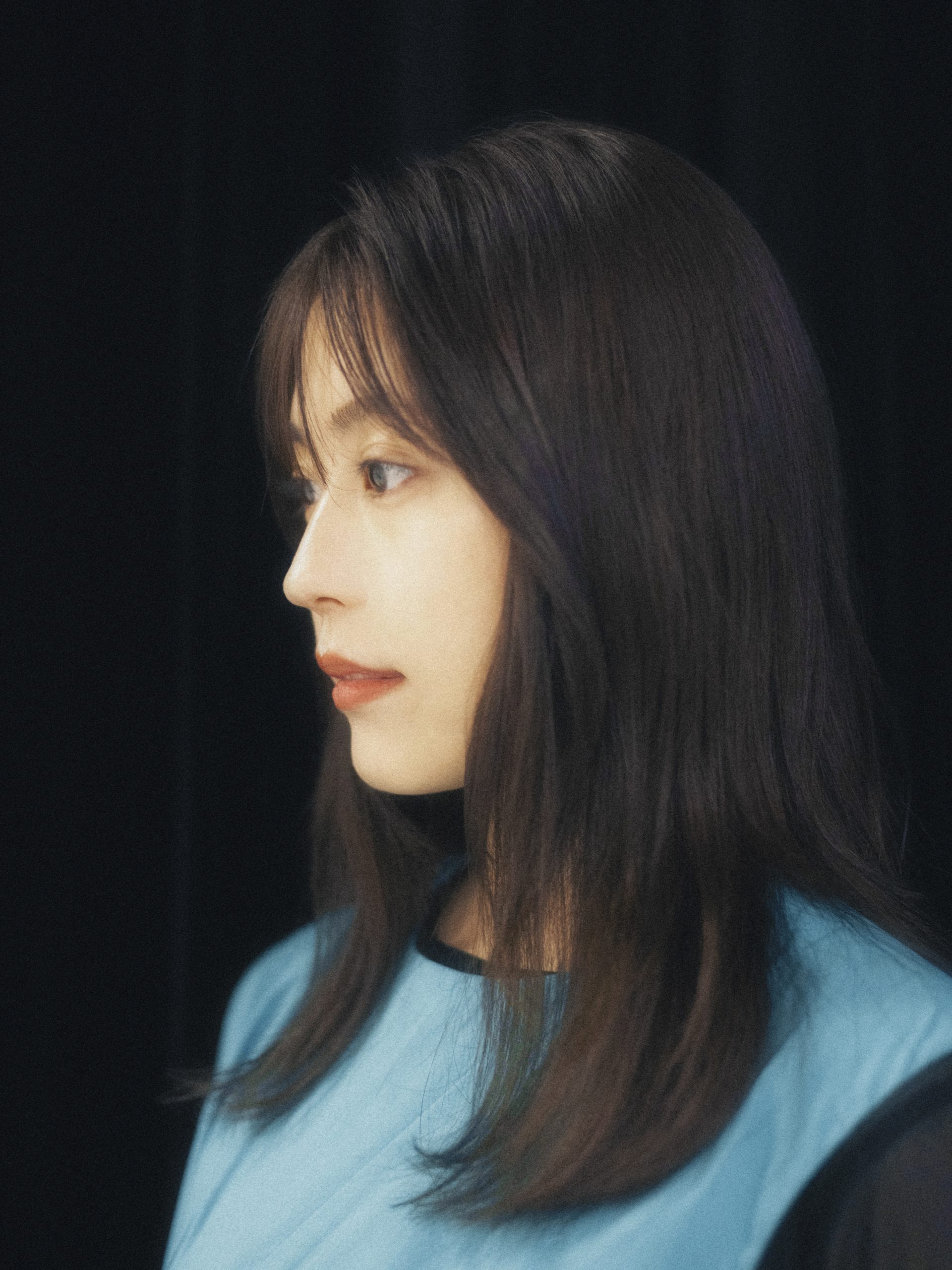
– Chihiro has some profound dialogue that makes us question how many lives she’s lived. Are there any lines that struck you in particular?
Arimura: “A meal eaten together is delicious, but a meal eaten alone is still delicious” is the line that struck me most. There’s a negative impression that people who are alone are lonely, but that’s not true. There are many people in the world who love solitude. If someone feels that it’s easier for them to be alone, that’s what makes them happy. This line felt accepting of the act of being alone.
For instance, finding a place where a schoolgirl can eat lunch alone may be very difficult for her, but it may also be her place of salvation. They are free to love that space, and I think many people may be relieved of these anxieties if there were people like Chihiro saying that spending time alone is perfectly fine. I think there’s a lot of dialogue in the manga and the movie that can help people.
I personally think there’s nothing wrong with solitude because I don’t think humans can understand each other 100%. There are always things others don’t know about you, whether it’s someone you like, friends, or family. That objectiveness can be fun; you can imagine what they’re thinking about, and really consider the other person. We learn so much when we confront each other, and I think solitude is at the root of this process.
You’re alone when you fight, too. For example, you’re alone when you’re fighting through a workload that was thrust upon you. I’m sure the fight with solitude is common in any profession, and the responsibility gets heavier the higher up you are. Like the student who has the best GPA in the class must be in solitude to maintain that position. Athletes are the same. There are cons to being in this position, but there are also a lot one can learn from being alone. That’s why I don’t believe solitude equals loneliness at all.
– Are you conscious of when you’re fighting, too?
Arimura: It’s more like I’m fighting against myself, not with others.
– Unlike academics and sports, there is no numerical ranking for actors. What are some of the things you use as a guide when fighting against yourself?
Arimura: Castmates are like comrades at war in any project. I don’t feel any competitiveness, even with actors who aren’t on the same project, because we’re all comrades. I may envy another actor because there are so many unique and charming people in the field, but I try not to pay attention to it. I have to fight to get through this role or that day of shooting. It’s a fight to overcome what’s in front of you everyday (laughs).
“I’d like to work towards a better quality workplace”
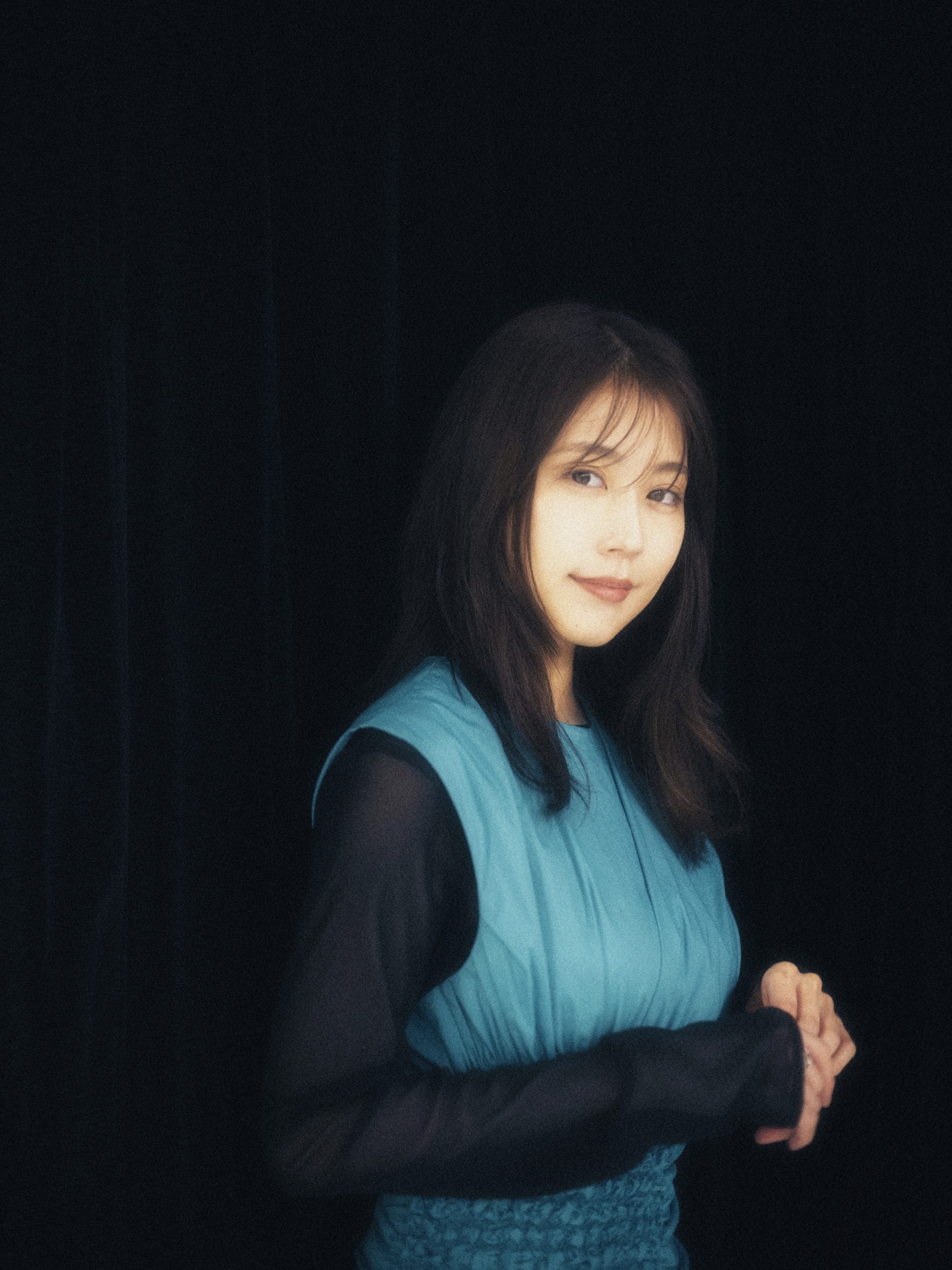
– Do you have any favorite scenes after watching the finished film?
Arimura: I basically like all the scenes that Okaji (Hana Toyoshima) and Makoto (Tetta Shimada) are in (laughs). Like the scene in Makoto’s house where Okaji cries eating the yakisoba made by Makoto’s mother (Yui Sakuma), or Chihiro’s POV shot of Okaji and Makoto when they go to Chihiro’s house bearing get-well gifts, each of their scenes are so precious. I think they played incredibly important roles in this film.
Makoto was very free, but could say all his lines when rolling regardless. That’s what amazed director Imaizumi, who would say, “that’s why he’s impressive” (laughs). I heard that Makoto couldn’t cry during his audition when he was asked to. But when he was leaving the room, he offhandedly said, “I guess the part of me that can’t cry came out today”, which left a strong impression on the director (laughs). He was a very interesting child.
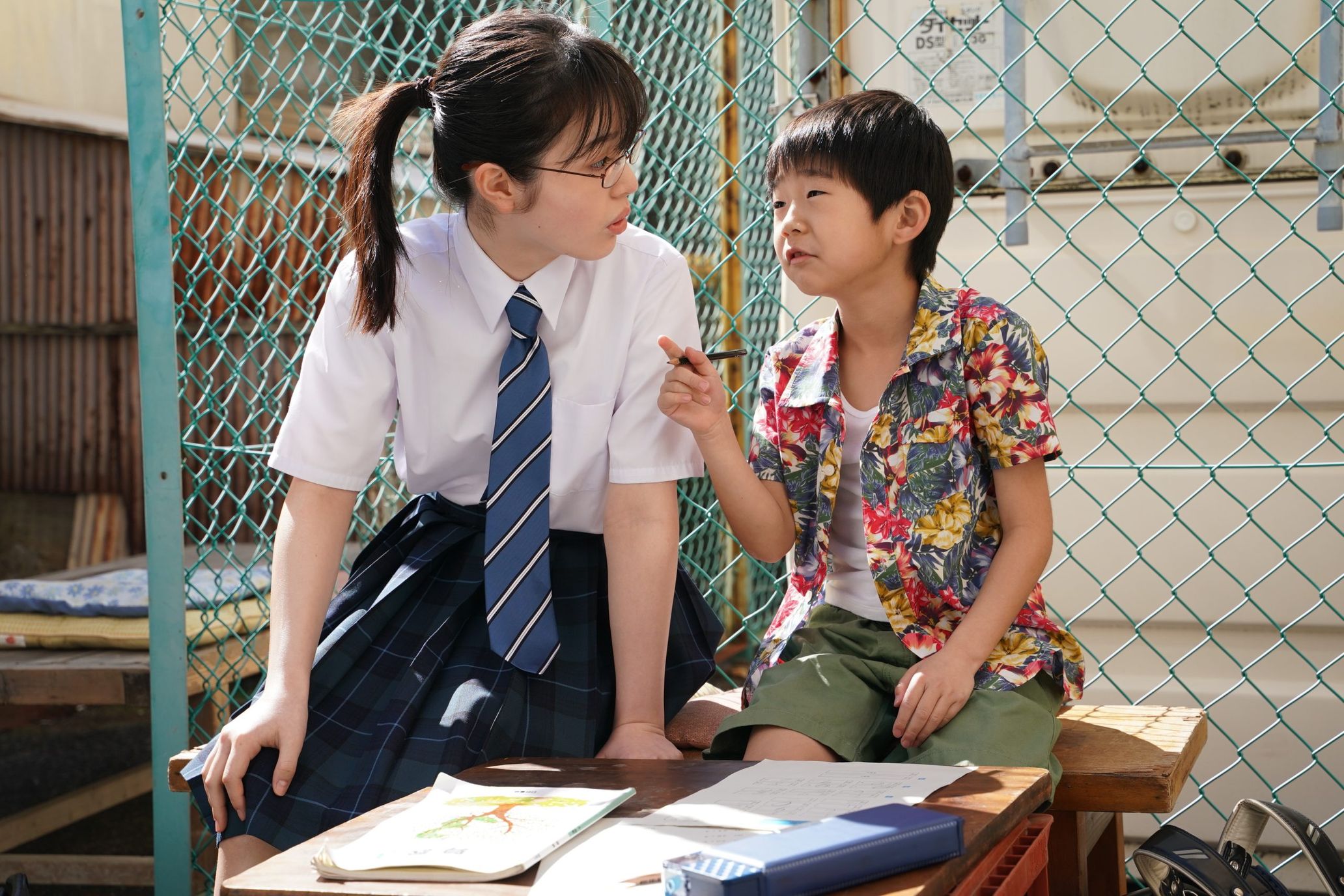
– I think Okaji’s perspective of the future changed for the better by meeting Chihiro during her high school years. Have you met anyone who has had that sort of impact on you?
Arimura: If you’re asking about encounters I’ve had since I started working this job, I was impacted by a senior at my agency. I trailed behind them because I assumed that I could be like that person if I worked just as hard as them. I read interview articles to digest this person’s thought processes, because I wanted to know what they were thinking. I feel like I gained a wider perspective by doing that.
– You were cast in so many projects in your twenties. How are you feeling, after turning thirty on February 13th? I’m wondering what age means to you.
Arimura: I’m shocked to already be thirty (laughs). Thankfully, my situation and background changed very rapidly in the last decade. These ten years have almost been too rich of an experience, and felt like it was gone in an instant. In terms of age, I don’t put much emphasis on it. I often think about what I can do in the present to age gracefully.
– The fact that Call Me Chihiro will be available on Netflix on the day of its theatrical release will also be a new experience. What would you like to work on in the future?
Arimura: Work is more fun when you’re able to have discussions with others. There have been increasingly more situations in which people will do exactly what I say.Instead, I’d like to create a work environment where we can share thoughts and ideas with each other. I’d like to work towards a better quality workplace in my thirties.
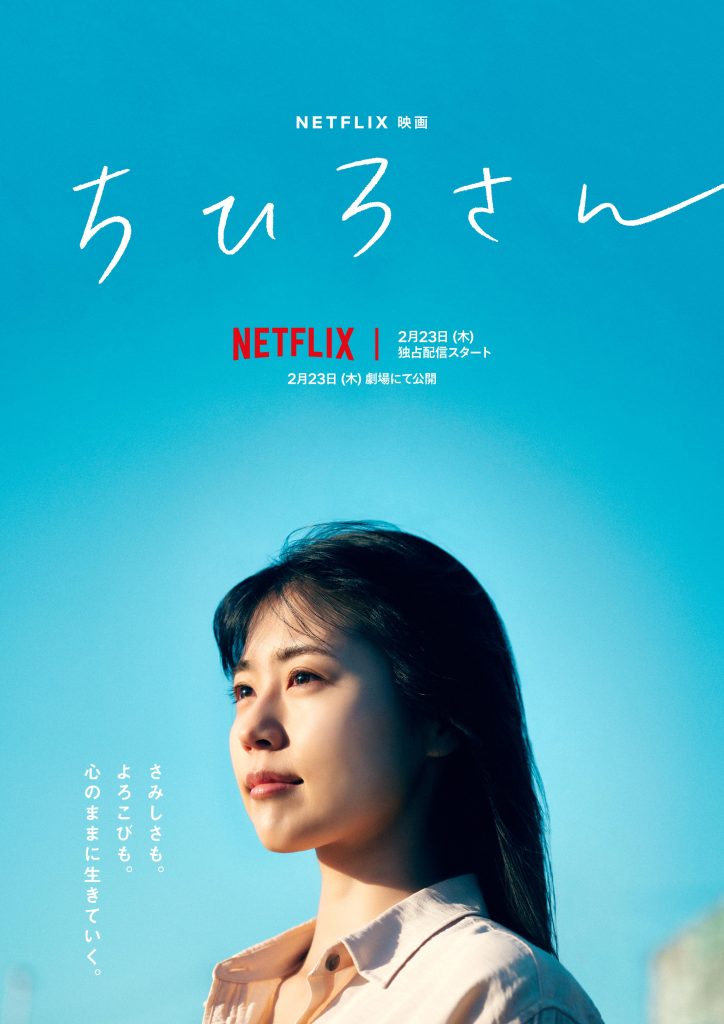
■Call Me Chihiro
International streaming on Netflix & Japanese theatrical release on February 23rd
Cast: Kasumi Arimura, Hana Toyoshima, Tetta Shimada, van, Tatsuya Wakaba, Yui Sakuma, Lily Frankie, Jun Fubuki, and others.
Based on: Chihiro-san by Hiroyuki Yasuda (Akita Shoten “Akita Ladies/Comics/Deluxe” edition)
Director: Rikiya Imaizumi
Screenplay: Kaori Sawai, Rikiya Imaizumi
Producer: Netflix, Asmik Ace
Production company: Asmik Ace, Digital Frontier
Distribution: Asmik Ace
https://chihiro-san.asmik-ace.co.jp
Translation Mimiko Goldstein
Photography Mikako Kozai(L management)
Styling Yumiko Segawa
Hair & Make-up Izumi Omagari
